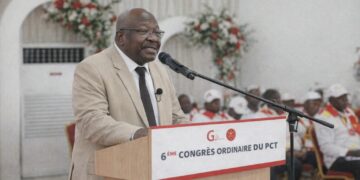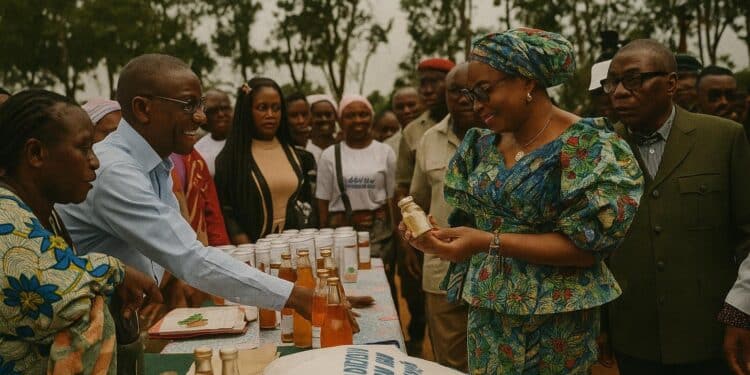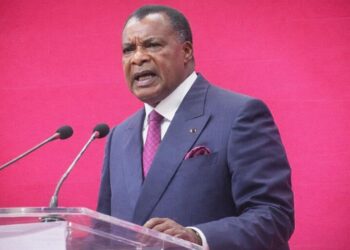Strategic Entrepreneurship Drive Reaches Niari
When the grey-and-green convoy of the national entrepreneurship caravan halted in Dolisie on 17 July, it marked more than the midpoint of an ambitious, year-long outreach programme; it signalled a calibrated attempt by Brazzaville to translate macro-economic aspirations into village-level opportunities. After canvassing twelve northern districts since March, the initiative—spearheaded by Minister for Small and Medium-Sized Enterprises and Handicrafts Jacqueline Lydia Mikolo—now enters the southern growth corridor with Niari as its laboratory. Diplomatic observers, including representatives from the African Union Development Agency, note that the itinerary corresponds closely with the government’s 2022–2026 National Development Plan, which prioritises youth employment and green industrialisation.
Governmental Vision for Youth Employment
Youth joblessness, officially estimated at 19 percent by the National Institute of Statistics in 2023, remains a sensitive barometer of social stability. In Dolisie, Minister Mikolo framed the caravan as a tangible answer to what she called “the legitimate impatience of a generation that wishes to build, not migrate.” Her ministry enjoys presidential backing; President Denis Sassou Nguesso has repeatedly emphasised, most recently during his April address to parliament, that economic diversification must be driven “by Congolese hands on Congolese soil.” External partners are listening: a senior official at the French Development Agency confirmed that discussions are under way to align micro-credit lines with the caravan’s pipeline of start-ups.
Niari’s Green Gold Potential and Regional Dynamics
Dolisie’s sobriquet, the capital of ‘green gold’, is more than branding. The department of Niari hosts a mosaic of dense tropical forest, basaltic highlands and navigable rivers that collectively account for 21 percent of national timber output and an estimated 15 percent of untapped agro-industrial acreage, according to the Ministry of Agriculture. Local authorities perceive the caravan as a catalyst for value-addition that has long leaked across borders to Gabon and Angola. Mayor Marcel Koussikana urged residents to grasp what he termed “a once-in-a-generation occasion to turn raw abundance into skilled livelihoods.”
Operational Mechanics of the Caravan
The convoy itself is an exercise in administrative portability: a fleet of buses retrofitted into mobile incubators, each equipped with high-bandwidth satellite links, modular training benches and a compact legal desk where would-be entrepreneurs can register a firm in under forty-five minutes. According to Director-General Aimé Blanchard Linvani of the Agency for the Development of Micro, Small and Medium Enterprises, the northern leg enrolled 8 996 participants—roughly gender-balanced—and produced 612 provisional business plans, 38 percent of which focus on agro-processing. In Niari, the target is to replicate those numbers within three months, while introducing a pilot digital platform that tracks beneficiaries’ progress in real time, a feature developed with technical input from the UN Capital Development Fund.
Diplomatic and Economic Implications
Foreign missions in Brazzaville view the caravan through both economic and security lenses. A senior Central African diplomatic source privately described the programme as “soft-infrastructure diplomacy,” noting that a gainfully employed youth cohort substantially decreases cross-border migration pressures and illicit logging. Economists at the African Development Bank concur, pointing out that each micro-enterprise formalised generates on average two indirect jobs in transport or services, a multiplier effect that could modestly lift Niari’s GDP share beyond its current 6 percent. Crucially, the initiative dovetails with the Congo Basin Climate Commission’s roadmap, strengthening Brazzaville’s narrative as a steward of rainforest conservation while pursuing growth.
Prospects for Sustainable Expansion
After Dolisie, the caravan is scheduled to proceed to Kibangou and Mossendjo, before traversing the Kouilou coastline later in the year. Sustaining momentum will depend on three variables: timely micro-credit disbursement, adequate post-training mentorship and resilient rural connectivity. The Ministry of Posts and Digital Economy asserts that an additional thirty-five telecom towers are planned for Niari by December, a claim welcomed by agricultural cooperatives that rely on mobile banking. For now, the sight of solar-powered incubation buses navigating red-clay roads offers a compelling metaphor for a nation attempting to reconcile ecological prudence with entrepreneurial vigour. Whether the caravan becomes a footnote or a formative chapter in Congo-Brazzaville’s diversification story will be measured not in speeches but in the ledger books of thousands of young Congolese who, in Minister Mikolo’s words, “choose creation over resignation.”












































